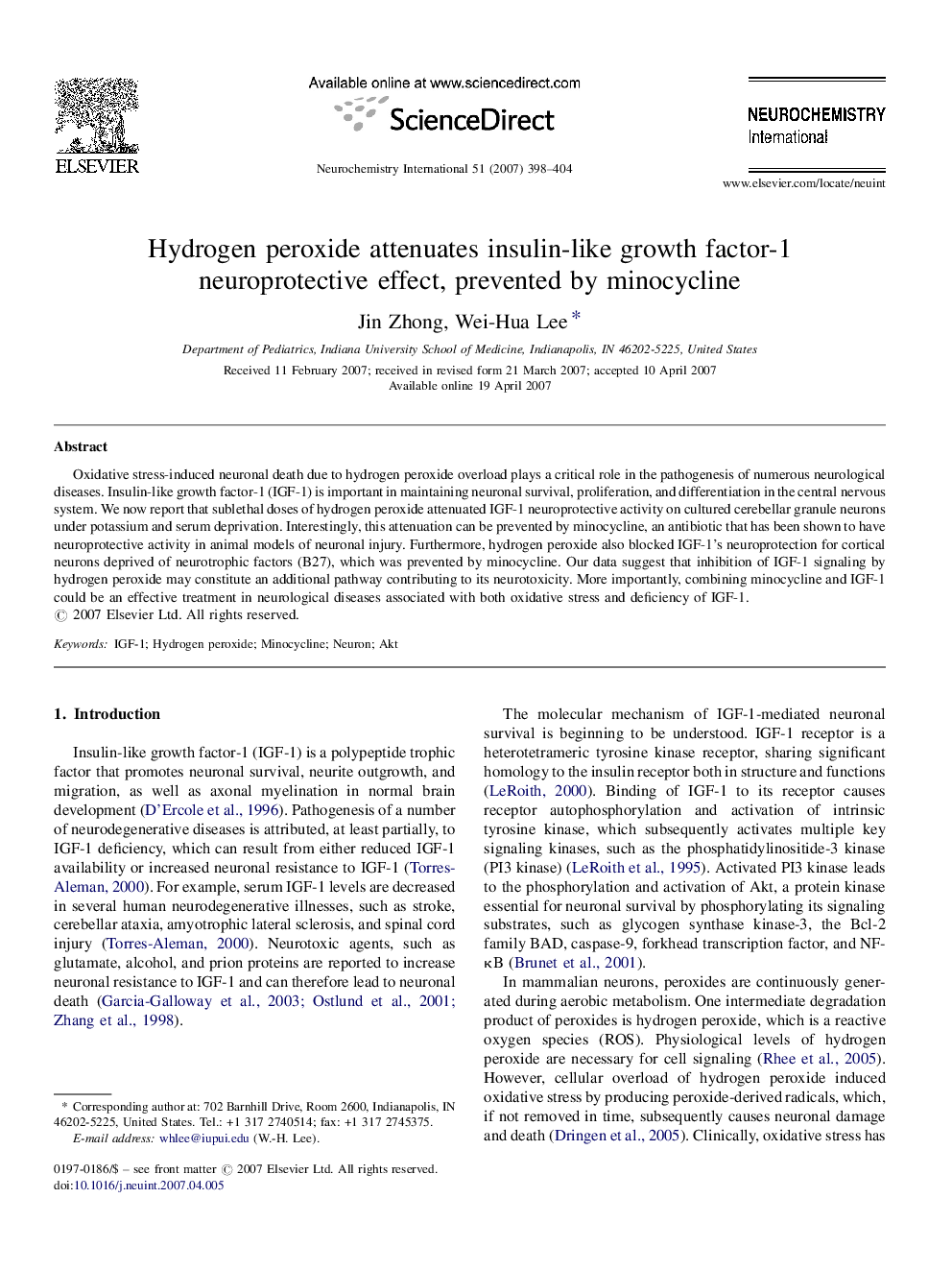| Article ID | Journal | Published Year | Pages | File Type |
|---|---|---|---|---|
| 2201829 | Neurochemistry International | 2007 | 7 Pages |
Oxidative stress-induced neuronal death due to hydrogen peroxide overload plays a critical role in the pathogenesis of numerous neurological diseases. Insulin-like growth factor-1 (IGF-1) is important in maintaining neuronal survival, proliferation, and differentiation in the central nervous system. We now report that sublethal doses of hydrogen peroxide attenuated IGF-1 neuroprotective activity on cultured cerebellar granule neurons under potassium and serum deprivation. Interestingly, this attenuation can be prevented by minocycline, an antibiotic that has been shown to have neuroprotective activity in animal models of neuronal injury. Furthermore, hydrogen peroxide also blocked IGF-1's neuroprotection for cortical neurons deprived of neurotrophic factors (B27), which was prevented by minocycline. Our data suggest that inhibition of IGF-1 signaling by hydrogen peroxide may constitute an additional pathway contributing to its neurotoxicity. More importantly, combining minocycline and IGF-1 could be an effective treatment in neurological diseases associated with both oxidative stress and deficiency of IGF-1.
